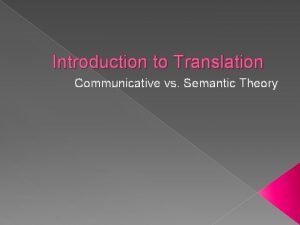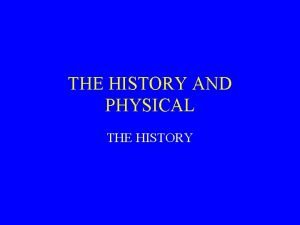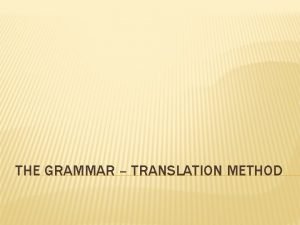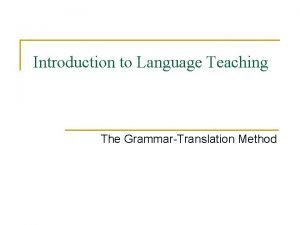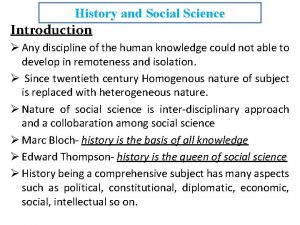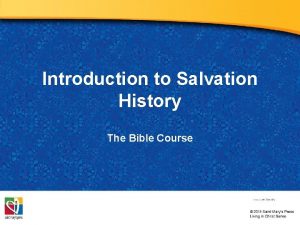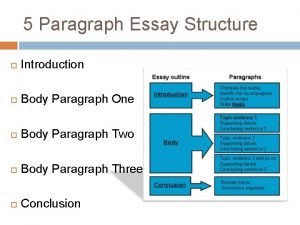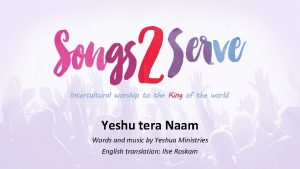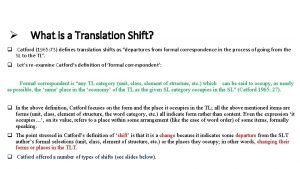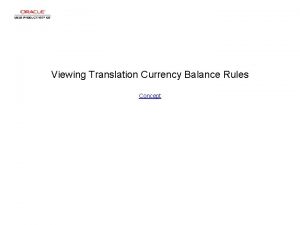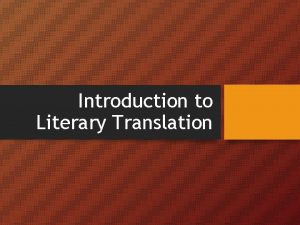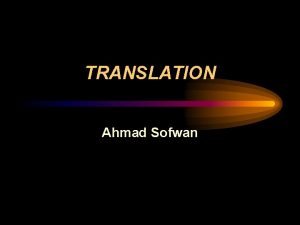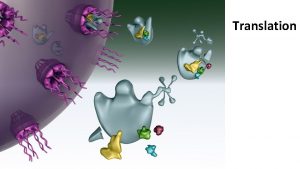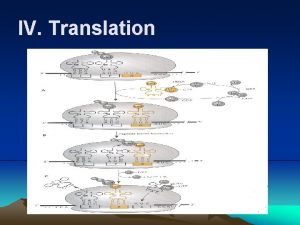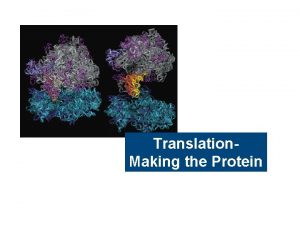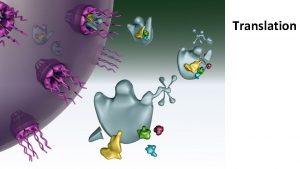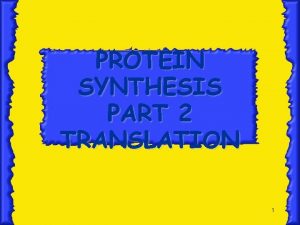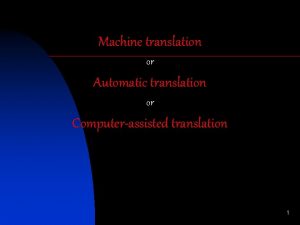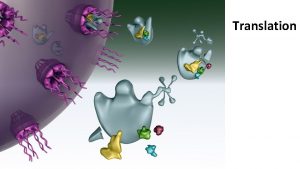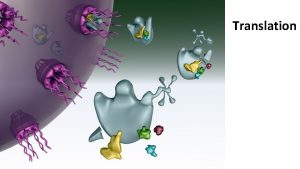Introduction to Translation History of Translation Translation in
















- Slides: 16

Introduction to Translation History of Translation

Translation in Western World � Roman Times: 1 - Researchers mentioned that writings on translation go back to the Romans. 2 - Cicero and Horace: first theorists who distinguished between word-for-word and sense-for-sense translation. They influenced the following generations of translation.

Translation in Western World � Translating the Bible: 1 - The Bible was translated from Greek into Latin. 2 - The translation of the Bible remained subject to many conflicts between western theories and ideologies of translation for more than a thousand years. 3 - These conflicts were intensified with the coming of the Reformation in the sixteenth century.

Translation in Western World � 15 th Century: 1 - The invention of printing techniques developed the field of translation and helped in the appearance of early theorists.

Translation in Western World � 17 th Century: 1 - The birth of many influential theorists such as Sir John Denhom, Abraham Cowley, John Dryden. 2 - Distinction between three types of translation; metaphrase, paraphrase and imitation.

Translation in Western World � 18 th Century: 1 - The translator was compared to an artist with a moral duty both to the work of the original author and to the receiver.

Translation in Western World � 19 th Century: 1 - Conflicting tendencies; the first saw the translator as a creative genius, while the second saw him through the mechanical function of making a text or an author known. 2 - Enhancement of Romanticism, leading to the birth of many theories and translations in the domain of literature, especially poetic translation. E. g. Edward Fitzgerald’s Translation of Rubaiyat Omar Al. Khayyam.

Translation in Western World � 20 th Century: 1 - Studies on translation became an important course in language teaching and learning at schools. 2 - Text-based model (focused on the text) and cultural model (focused on cultural understanding).

Translation in Western World � Present Time: 1 - Invention of the internet, new technological developments in communication and digital materials has increased cultural exchanges between nations. 2 - Entering the world of cinematographic translation (audiovisual translation or screen translation). This technique is concerned with the translation of all kinds of TV programs. This field is based on computers and translation software programs, and it is composed of two methods: dubbing and subtitling.

Translation in Arab World � 2 nd Century: 1 - Syrians translated into Arabic a large heritage that belongs to the era of paganism. Syrians were influenced in their translations by the Greek ways of translation (more literal and faithful to the original).

Translation in Arab World � The time of Prophet Mohamed (peace be upon him): 1 - The spread of Islam and the communication with non. Arabic speaking communities as Jews, Romans and others pushed the prophet to look for translators and to encourage the learning of foreign languages. 2 - One of the most famous translators of the time is Zaid Ibnu Thabet, who played a crucial role in translating letters sent by the prophet to foreign kings of Persia, Syria, Rome and Jews, and also letters sent by those kings to the prophet.

Translation in Arab World � Translating Quran: 1 - Early translators of the Koran focused on its meaning. E. g. Salman El Farisi translated the meaning of Surat Al Fatiha for Persian Muslims. 2 - It was translated into Persian and into Turkish.

Translation in Arab World � First Abbasid Period: 1 - Translation knew an enhancement with the Caliph Al-Mansour, who built the city of Baghdad. 2 - Caliph Al-Ma'moun built 'Bait Al Hikma', which was the greatest institute of translation. 3 - During the period translators focused on Greek philosophy, Indian science and Persian literature.

Translation in Arab World � Al-Jahith: 1 - One of the greatest theorists in translation. His translation theories and writings are still used today by many professional Arab translators. 2 - Al-Hayawān and Al-Bayān Wa Attabayyun.

Translation in Arab World � Mona Baker: 1 - She distinguished between two famous methods in Arab translation: A- Yohana Ibn Al- Batriq and Ibn Naima Al-Himsi: literal translation(each Greek word was translated by its equivalent Arabic word). B- Hunayn Ibn Ishaq Al-Jawahiri: sense-for-sense translation (create fluent target texts that preserve the meaning of the original).

Translation in Arab World � Present Time: 1 - Use of computers, digital materials and the spread of databases of terminologies that offer translators a considerable number of dictionaries. 2 - There is still a big gap between Arab and Western world is still wide, regarding number of translations.
 What is semantic translation
What is semantic translation Cisco voice translation-rule
Cisco voice translation-rule Linear function transformations
Linear function transformations Noun to noun
Noun to noun History also history physical
History also history physical Advantages of grammar translation method
Advantages of grammar translation method Grammar translation method introduction
Grammar translation method introduction What is history in social science discipline
What is history in social science discipline Introduction to history of education
Introduction to history of education Salvation history
Salvation history Conclusion paragraph format
Conclusion paragraph format Jis naam me hai mukti lyrics
Jis naam me hai mukti lyrics Ttsmp.3
Ttsmp.3 Last ayat of surah baqarah with english translation
Last ayat of surah baqarah with english translation Catford translation shifts
Catford translation shifts Quintus de se translation
Quintus de se translation Translation rules chart
Translation rules chart
